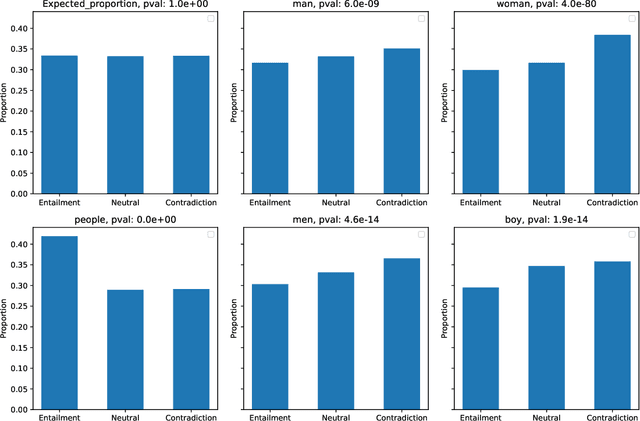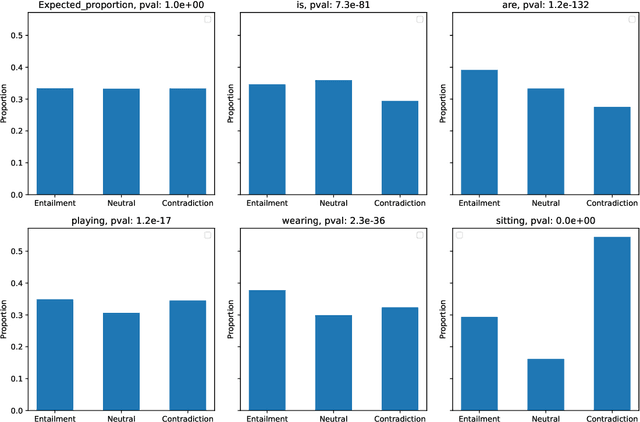Dissecting vocabulary biases datasets through statistical testing and automated data augmentation for artifact mitigation in Natural Language Inference
Paper and Code
Dec 14, 2023



In recent years, the availability of large-scale annotated datasets, such as the Stanford Natural Language Inference and the Multi-Genre Natural Language Inference, coupled with the advent of pre-trained language models, has significantly contributed to the development of the natural language inference domain. However, these crowdsourced annotated datasets often contain biases or dataset artifacts, leading to overestimated model performance and poor generalization. In this work, we focus on investigating dataset artifacts and developing strategies to address these issues. Through the utilization of a novel statistical testing procedure, we discover a significant association between vocabulary distribution and text entailment classes, emphasizing vocabulary as a notable source of biases. To mitigate these issues, we propose several automatic data augmentation strategies spanning character to word levels. By fine-tuning the ELECTRA pre-trained language model, we compare the performance of boosted models with augmented data against their baseline counterparts. The experiments demonstrate that the proposed approaches effectively enhance model accuracy and reduce biases by up to 0.66% and 1.14%, respectively.
 Add to Chrome
Add to Chrome Add to Firefox
Add to Firefox Add to Edge
Add to Edge